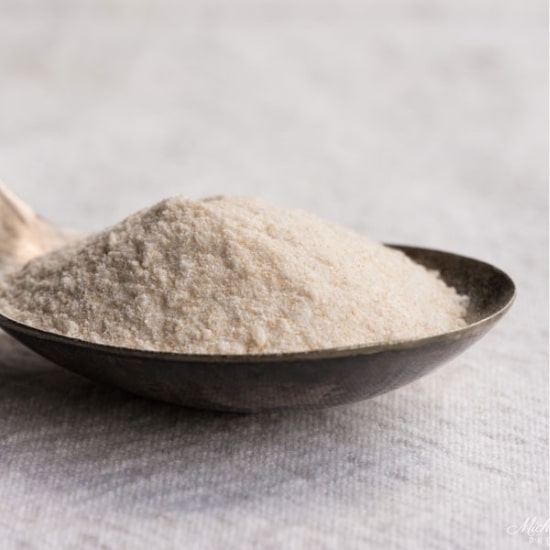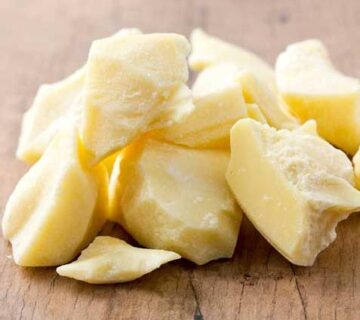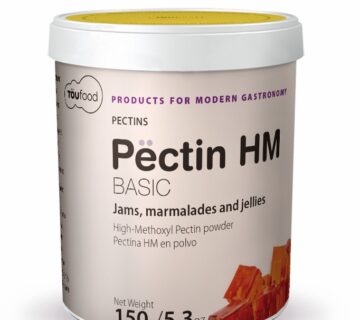In today’s food and beverage industry, the demand for non-GMO, clean-label ingredients is surging. Manufacturers are under pressure to meet consumer expectations, regulatory standards, and production efficiency simultaneously. Among gelling agents, thickeners, and stabilizers, Non-GMO Pectin stands out as a versatile, reliable, and sustainable solution—particularly when sourced from trusted exporters like LATAMARKO.
At MT Royal, we have decades of experience supplying high-quality pectin to production facilities worldwide. Over the years, we’ve observed how careful selection of pectin grades and suppliers can directly influence product consistency, gel strength, and operational efficiency.
What is Non-GMO Pectin?
Non-GMO pectin is a naturally derived polysaccharide extracted from fruits such as citrus peels or apple pomace, produced without genetically modified organisms. Its primary functional properties include:
- Gelation: Essential for jams, jellies, fruit fillings, and certain confectionery applications.
- Thickening & Stabilization: Maintains viscosity and prevents phase separation in beverages, dairy products, and sauces.
- Film Formation & Emulsion Stabilization: Useful in bakery, confectionery, and pharma formulations.
Non-GMO pectin complies with EU standards, including safety, purity, and traceability requirements, making it suitable for international food manufacturing and export.
Types and Functional Grades
Pectin functionality depends on the degree of methylation (DM), which determines its gelling mechanism:
| Type | Gelation Requirement | Typical Applications |
|---|---|---|
| High Methoxyl (HM) | Sugar & Acid | Traditional jams, fruit spreads, jellies |
| Low Methoxyl (LM) | Calcium ions | Reduced-sugar jams, dairy-based gels, acidic beverages |
| Instant Soluble Pectin | Prehydrated, fast-dispersing | Efficient industrial production, high-throughput jam and fruit filling lines |
Instant soluble pectin variants provide rapid hydration and gel formation, reducing downtime and improving batch consistency—critical in large-scale industrial operations.
Industrial Benefits of Non-GMO Pectin
1. Consistent Quality Across Batches
EU-standard, non-GMO pectin from LATAMARKO ensures uniform gel strength and viscosity, which is essential for both domestic and export products. Even slight variations in gelation can lead to significant operational challenges or customer complaints.
2. Regulatory and Market Compliance
With rising consumer demand for non-GMO and natural ingredients, compliance with EU standards not only mitigates regulatory risk but also enhances brand credibility in international markets.
3. Improved Process Efficiency
Instant soluble forms hydrate rapidly, reducing preparation time and energy costs. In high-volume facilities, this translates to faster batch cycles and reduced operational downtime.
4. Enhanced Product Performance
Non-GMO pectin stabilizes emulsions, preserves fruit integrity in jams, and prevents syneresis in dairy and beverage applications. The result is better texture, shelf-life, and consumer satisfaction.
Applications in Food and Beverage Production
| Sector | Function | Outcome |
|---|---|---|
| Jam & Jelly | Gelation & texture | Firm, uniform, and smooth gel |
| Fruit Fillings | Stabilization | Even fruit distribution, no liquid separation |
| Confectionery | Thickening & mouthfeel | Elastic, soft gels suitable for fillings |
| Dairy & Acidic Beverages | Viscosity & stability | Prevents separation, ensures smooth texture |
| Bakery & Sauces | Moisture retention | Improved texture and shelf-life |
Manufacturers using LATAMARKO non-GMO pectin notice greater operational flexibility and product consistency, especially when scaling from pilot batches to industrial production.
Processing Tips for Industrial Efficiency
1. Correct Hydration Techniques
Blend pectin with sugar or dry ingredients before adding liquids to prevent clumping. Instant soluble forms allow room-temperature hydration, minimizing energy consumption.
2. pH and Ionic Considerations
- HM pectin requires acidic conditions and sugar for gelation.
- LM pectin requires calcium ions for setting.
Proper monitoring ensures consistent gel texture and firmness.
3. Temperature Management
Avoid prolonged exposure to high temperatures, which can degrade pectin molecules and compromise gel strength. Maintain controlled heating for optimal results.
4. Synergy with Other Hydrocolloids
Combining pectin with gums (xanthan, guar, or locust bean) allows precise control over viscosity and gel strength, tailored to specific product needs.
5. Accurate Dosage
Typical usage: 0.5–2% depending on product type. Conduct small-scale trials to fine-tune the formulation.
Real-World Manufacturing Insights
In our experience supplying production facilities:
- Jam Production: Non-GMO pectin reduced batch variability and improved fruit suspension in high-volume lines.
- Dairy Beverages: LM pectin provided stable viscosity without affecting flavor or acidity.
- Reduced-Sugar Products: Maintained gel firmness using calcium-assisted LM pectin, meeting clean-label consumer expectations.
Such examples underscore the importance of high-quality, consistent ingredients in achieving reliable production outcomes.
Supplier and Brand Considerations
LATAMARKO is a premium Spanish-origin brand, respected for its precision, consistency, and adherence to EU standards. Partnering with reliable suppliers such as MT Royal ensures:
- Access to certified non-GMO, EU-standard pectin.
- Expert technical guidance for dosage, hydration, and processing.
- Competitive pricing without compromising quality.
Selecting a trustworthy supplier mitigates risks of batch failures, product recalls, or texture inconsistencies.
Common Pitfalls in Procurement
- Assuming All Pectins Are Interchangeable: Different grades affect gelation and texture.
- Ignoring Technical Support: Lack of guidance may lead to process inefficiencies.
- Overprioritizing Cost: Low-cost alternatives can increase waste and variability.
- Neglecting Certification Requirements: Ensure Halal, Kosher, and EU compliance if targeting global markets.
Practical Tips for Production Managers
- Conduct pilot trials for new batches.
- Monitor pH, temperature, and ionic content meticulously.
- Store pectin in cool, dry, airtight conditions.
- Use complementary hydrocolloids for desired viscosity and gel strength.
- Track batch gel strength and viscosity to reduce variability.
Frequently Asked Questions (FAQ)
Q1: Is non-GMO pectin suitable for reduced-sugar jams?
Yes, LM pectin with calcium ions enables firm gels without high sugar content.
Q2: Can LATAMARKO pectin be used in dairy products?
Absolutely, it stabilizes acidified dairy beverages and maintains smooth texture.
Q3: How should non-GMO pectin be stored?
Keep in a cool, dry, and airtight environment to preserve solubility and gel performance.
Q4: Can pectin be combined with other stabilizers?
Yes, synergy with gums like xanthan or guar enhances texture and consistency.
Q5: Why choose EU-standard pectin?
EU standards ensure traceability, purity, and global market acceptance, reducing regulatory risks.
Industry Trends and Insights
- Rising consumer preference for non-GMO and clean-label ingredients.
- Expansion of jam, jelly, and beverage markets globally.
- Increased focus on consistency, efficiency, and sustainability in manufacturing.
- Growth in international exports requiring certified ingredients.
Manufacturers leveraging non-GMO pectin from LATAMARKO experience enhanced product reliability, operational efficiency, and market competitiveness.
Conclusion
Non-GMO pectin is more than a functional ingredient—it is a strategic enabler for industrial food production. When sourced from premium suppliers like LATAMARKO through MT Royal, manufacturers gain consistent gel performance, regulatory compliance, and operational efficiency.
In a world where consumers demand transparency, natural ingredients, and high-quality products, selecting EU-standard, non-GMO pectin ensures you stay ahead in both production performance and market trust.







No comment